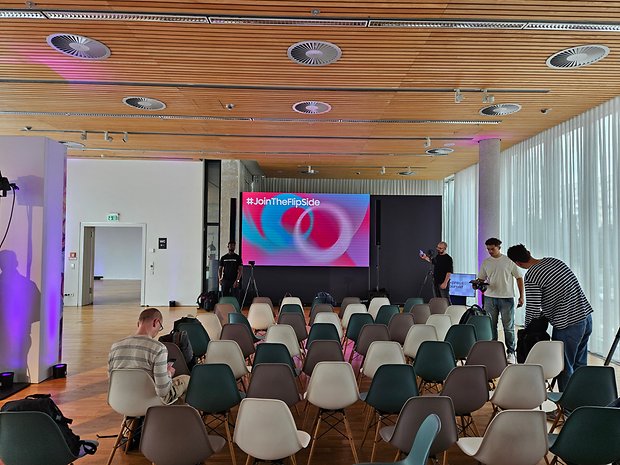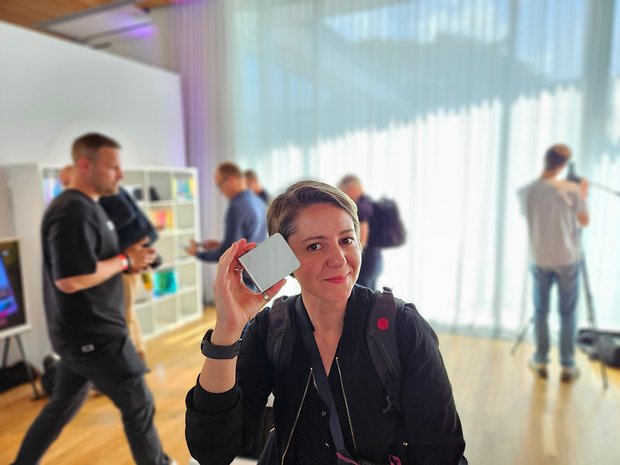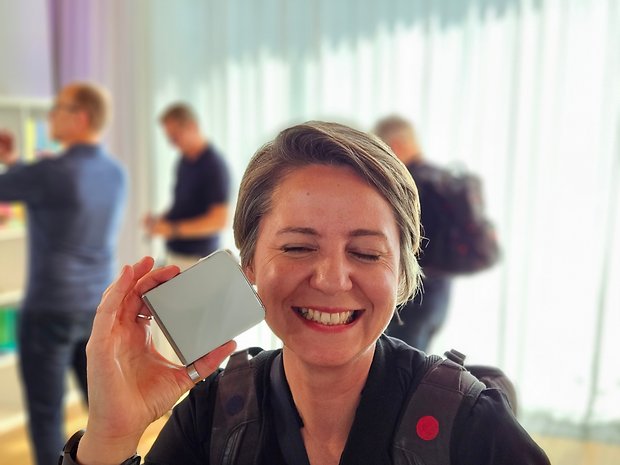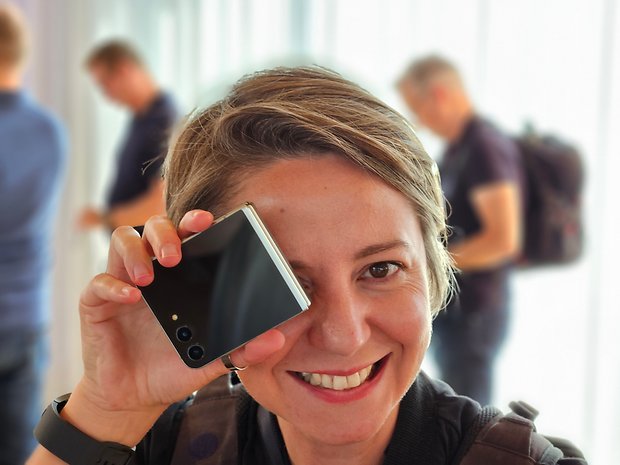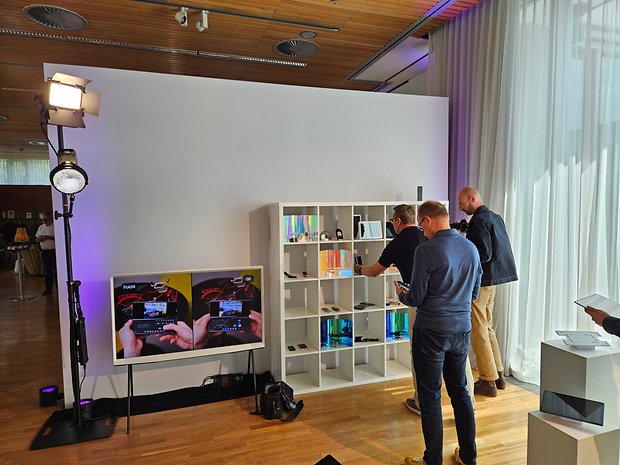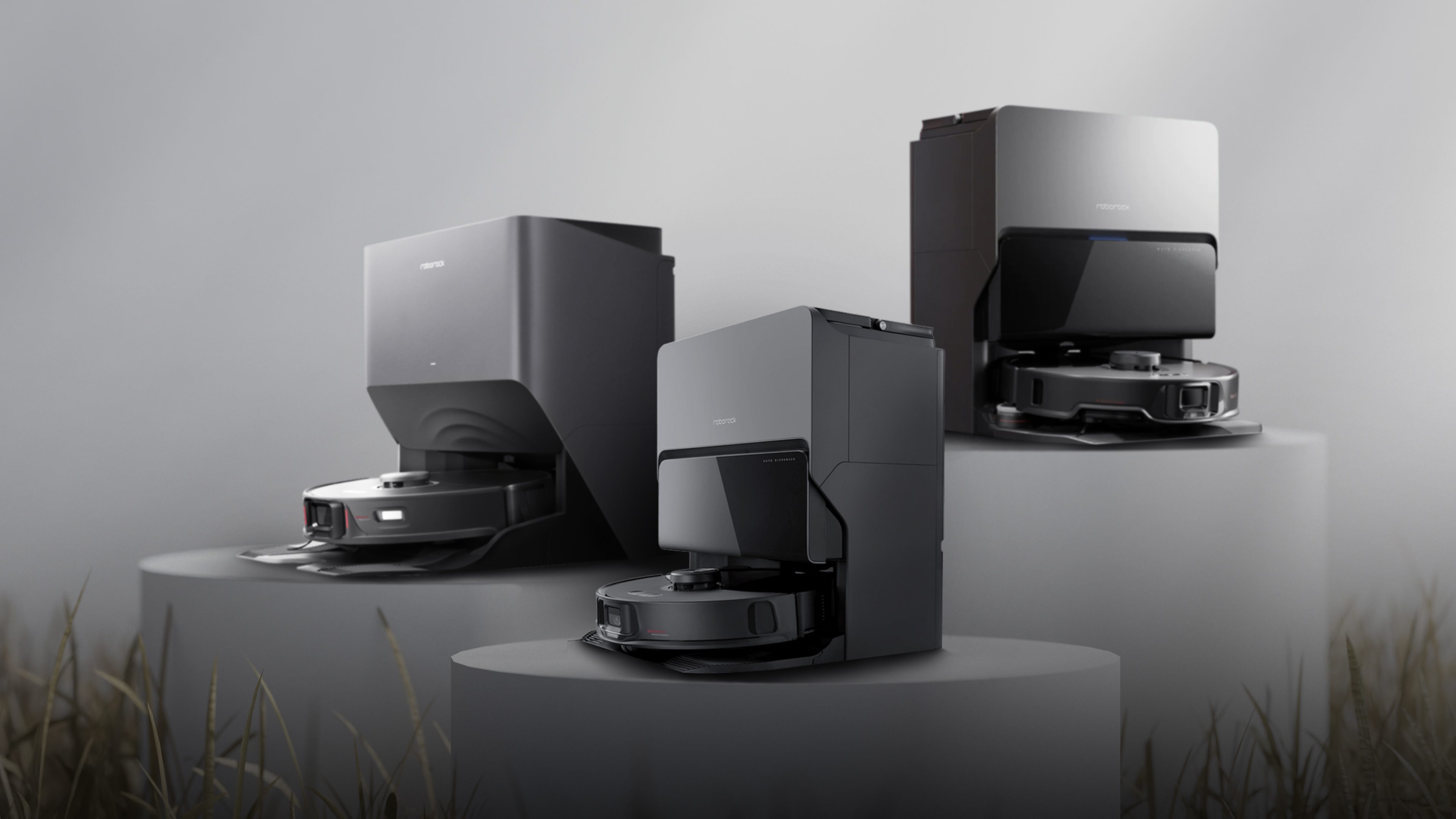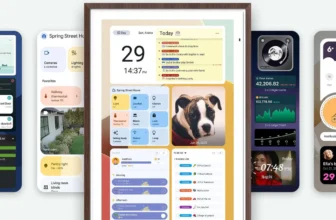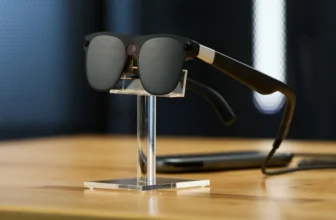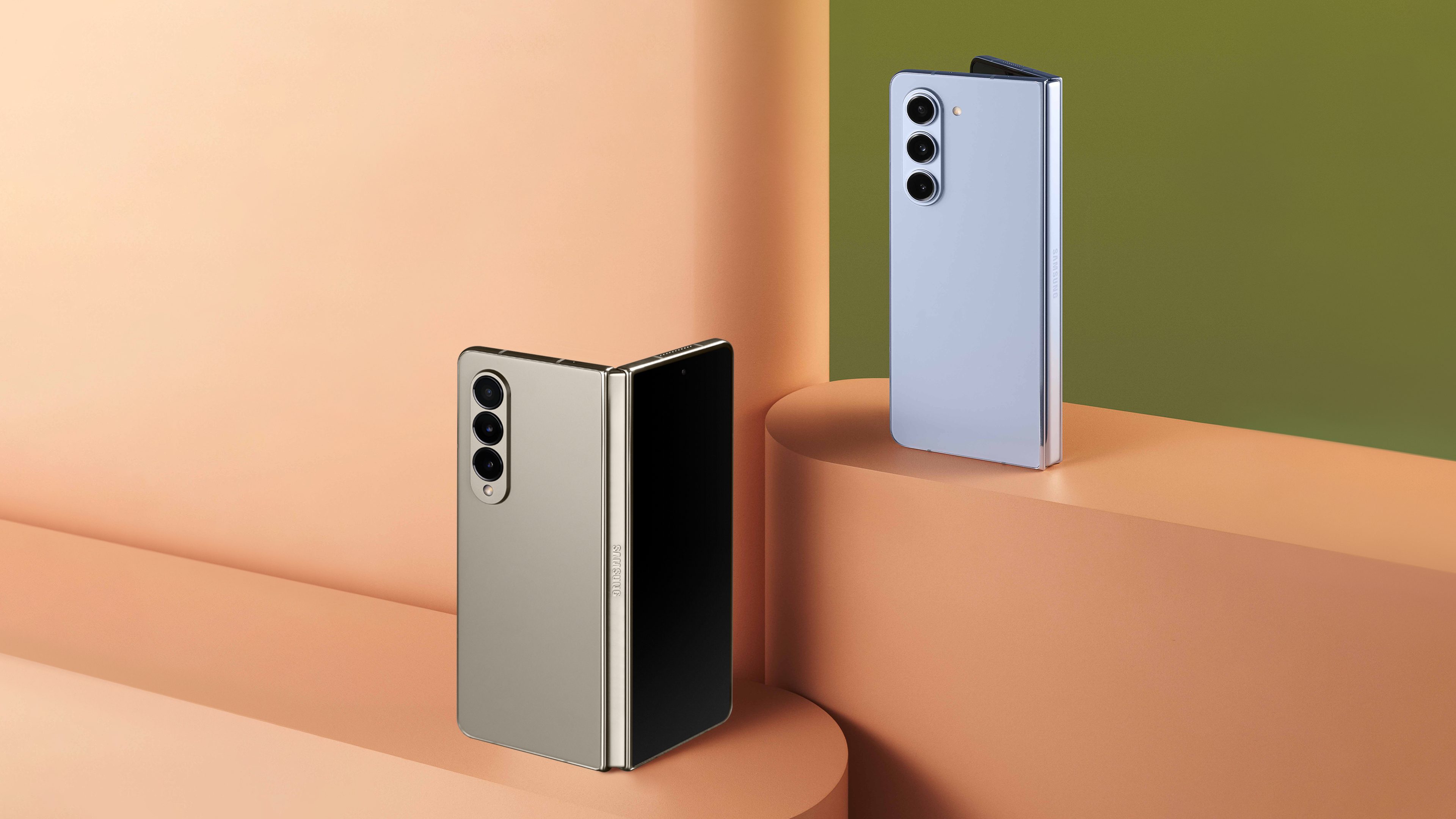
With Samsung already established in its annual update cycle for its foldable phones, its Galaxy Z Fold 5 debuted earlier than usual with a July launch. At first glance, the 2023 flagship foldable looks very similar to the Galaxy Z Fold 4, so we will delve deeper to reveal what upgrades did the Fold 5 brought over its predecessor in cameras, display, design, performance, and more.
While the Galaxy Z Flip 5 differentiated itself from its previous generation with a much bigger external display, the Galaxy Z Fold 5 looks pretty much like its predecessor—and honestly, like the Z Fold 3 as well. But before we investigate what really changed in the foldable’s fifth generation, let’s take a look first at the raw specifications first:
| Spot the differences | ||
|---|---|---|
| Product | ||
| Picture |
 |
 |
| Internal display | 7.6″ OLED 2176 x 1812 pixels 120 Hz |
7.6” OLED 2208 x 1768 pixels 120 Hz |
| External display | 6.2” OLED 2316 x 904 pixels 120 Hz |
6.2” OLED 2268 x 832 pixels 120 Hz |
| SoC | Snapdragon 8 Gen 2 | Snapdragon 8+ Gen 1 |
| RAM | 12 GB | |
| Storage | 256 / 512 / 1024 GB | |
| Expandable memory? | ❌ | |
| OS | Android 13 | Android 12 |
| Four Android upgrades Five years of security updates |
||
| Camera | Main: 50 MP, f/1.8, OIS Ultra-wide: 12 MP, f/2.2 3x telephoto: 10 MP, f/2.4 |
|
| Selfie | Internal: 4 MP, f/1.8 Cover: 10 MP, f/2.2 |
|
| Battery | 4,400 mAh 25 W wired charging 10 W wireless charging |
|
| Connectivity | 5G / LTE / Wi-Fi 6E / Wi-Fi Direct / Bluetooth 5.3 / NFC / UWB | 5G / LTE / Wi-Fi 6E / Wi-Fi Direct / Bluetooth 5.2 / NFC / UWB |
| eSIM | ✅ | |
| IP Certification | IPX8 | |
| Dimensions and weight | Folded: 154.9 x 67.1 x 13.4 mm Unfolded: 154.9 x 129.9 x 6.1 mm 253 g |
Folded: 155,1 x 67,1 x 15,8 mm Unfolded: 155,1 x 130,1 x 6,3 mm 263 g |
| Good |
|
|
| Bad |
|
|
| Rating |
Read the Galaxy Z Fold 5 Hands-on |
Read the Galaxy Z Fold 4 review |
| Offers* | ||
As you can see, there are many things in common between the Galaxy Z Fold 5 and 4. Of course, the processor upgrade should offer slightly better performance, and there are also the changes made to the hinge that Samsung was very eager to highlight. As we had little hands-on time with the new model, some of the comparisons below will be based on the data you can see above in the table.
Display and design
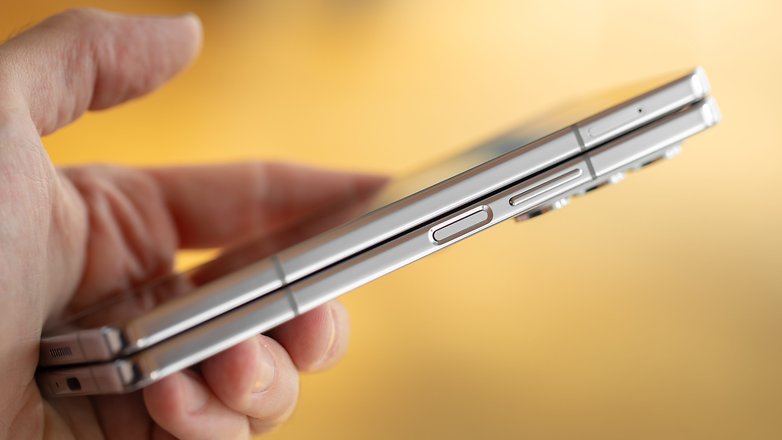
Although we are approaching the point of diminishing returns, Samsung managed to make the Galaxy Z Fold 5 slimmer when folded, when compared to the Fold 4. There is a near-zero gap between the two halves, resulting in a 2.4 mm reduction in thickness when the phone is closed to 13.4 mm. It is not as thin as the Pixel Fold we reviewed a couple of weeks back, but impressive nonetheless.
Overall, the Fold 5 shaved fractions of millimeters in most dimensions, while also getting 10 grams lighter (0.36 oz). The new model kept the IPX8 resistance against water while adopting stronger glass on the front and back—Gorilla Victus 2 versus Gorilla Victus+.
As in the previous version, the toughened glass only protects the outer screen, while the flexible internal display uses the same ultra-thin-glass (UTG) with a plastic protective layer on top—which should not be removed, it is worth repeating. Speaking of the screens, both phones use panels with similarly sized diagonals inside and out, with very small differences in pixel count that shouldn’t be really noticeable in daily use.
Performance and connectivity
Performance-wise, both phones are deservedly flagship devices—if the price wasn’t enough indication of that. The main difference in this section is that the Galaxy Z Fold 5 uses a newer generation high-end processor, the Snapdragon 8 Gen 2. It promises slightly higher performance than its predecessor, the 8+ Gen 1 chip used in the Fold 4, but users will be hard-pressed to notice differences in daily use.
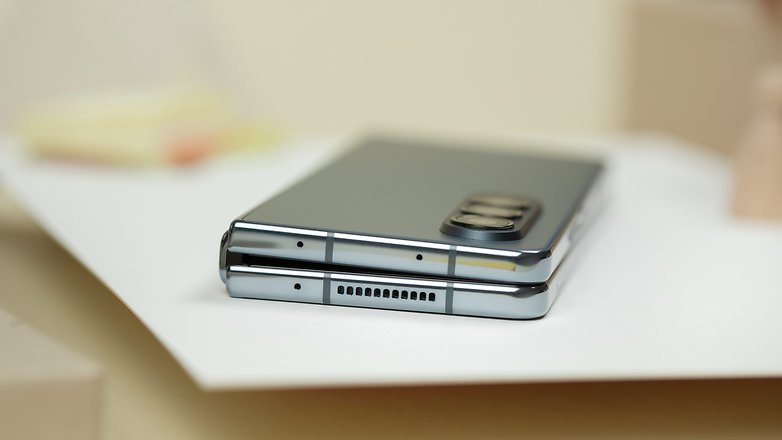
Both models use high-speed memory standards, LPRDR5 for RAM, and UFS for storage—UFS 4.0 on the Fold 5 and UFS 3.1 on the Fold 4, which should ensure top-notch performance while saving files and opening apps.
On the connectivity front, more unexciting news: The only upgrade is the rather minor jump from Bluetooth 5.2 to Bluetooth 5.3. Let’s check if the camera upgrades are more relevant…
Cameras
SPOILER ALERT: They were not.
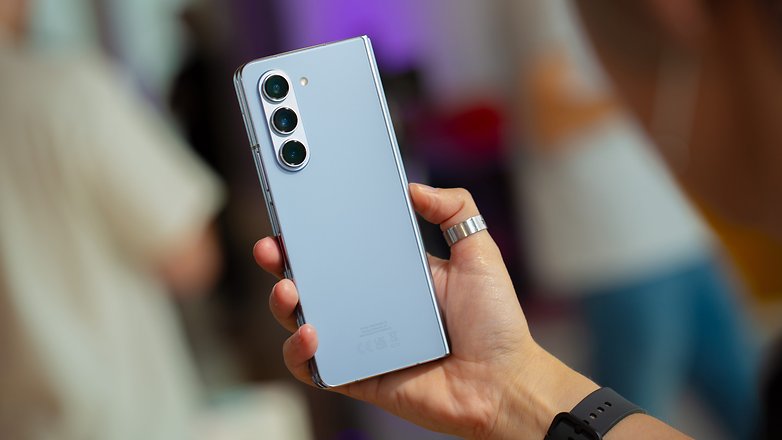
Fold 5 buyers will find the same triple camera setup consisting of wide-angle, ultra-wide-angle, and 3x zoom telephoto lenses. To make matters worse, the sensors used are apparently the same ones between the Fold 5 and 4 with the same resolution and aperture. Even the internal and external selfie cameras pack the same specifications.
We still have to test the Galaxy Z Fold 5 camera in-depth, but for now, check our galleries with sample pictures from the latest model:
Galaxy Z Fold 5 camera samples
Software
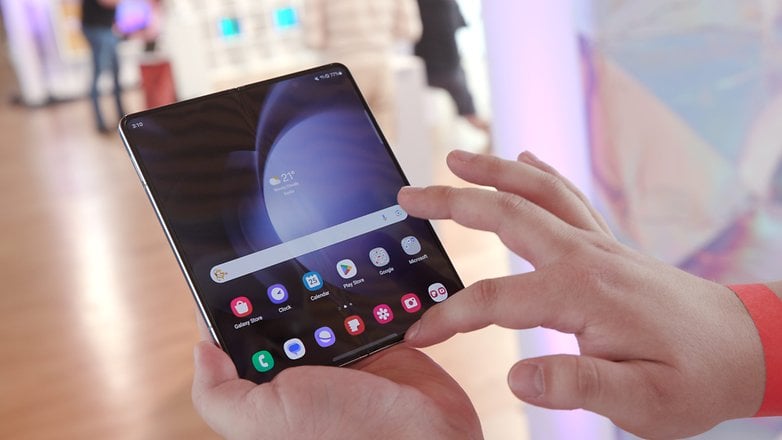
Both the Galaxy Z Fold 5 and Fold 4 were launched with the latest Android version at the time—Android 13 and 12, respectively—and Samsung promises the same level of software support for both: Four Android upgrades and 5 years of software updates. So expect to see “Android 17” and “16” in the Fold 5 and Fold 4.
Samsung highlighted a couple of multitasking features for the new Galaxy Z Fold 5 during the Unpacked event and media briefings, however, there are no big hardware changes that would make them exclusive to the 2023 model. Stay tuned to nextpit’s final review of the phone to see if the new tricks are truly useful.
Battery and Charging
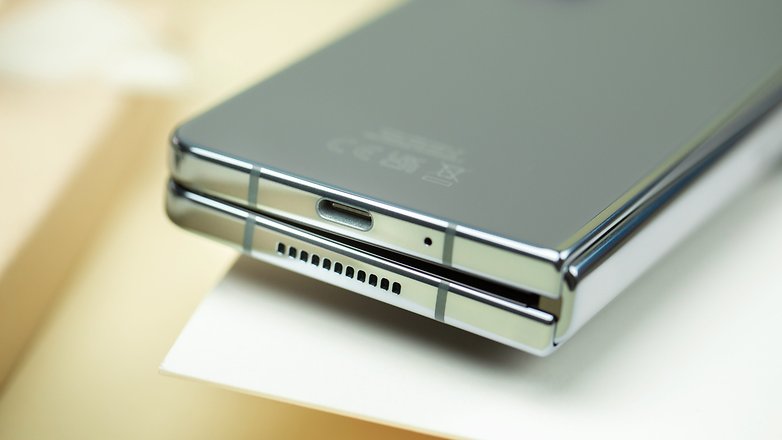
Just like my colleague Casi in his article on the Flip 5 upgrades, I could basically repeat the note from the camera section. You see, just like the camera module went essentially unchanged between the fourth and fifth generations, the battery and charging department also featured a straight hand-me-down:
- 4,400 mAh capacity.
- 25 W maximum charging power.
- 10 W wireless Qi charging.
- Reverse wireless charging (Wireless PowerShare).
Expect charging times to be roughly the same—unless compared with a degraded battery—, while we expect battery life to be comparable since both phones’ chips are made with TSMC’s N4 (4nm-class) process, we will wait for nextpit’s full review before calling this category a draw.
Price and availability
No surprises when it comes to pricing for the Fold 5, the new foldable’s manufacturer-suggested retail price (MSRP) is exactly the same as Samsung suggested for the Fold 4 in 2022, at least in the US. Almost one year later, however, Samsung reduced the Fold 4 official price slightly as you can see in the table below:
| MSRP | Galaxy Z Fold 5 | Galaxy Z Fold 4 |
|---|---|---|
| 256 GB | $1,799 | |
| 512 GB | $1,919 | |
| 1 TB | $2,159 |
What that table doesn’t cover, however, are not only the frequent discounts you can get on the older generation but also the preorder bonus Samsung is offering for its new high-end Galaxy smartphone. So it is worth comparing prices
Conclusion
As we eagerly await to test the new Galaxy Z Fold 5 it is a bit difficult to offer a definitive answer to which model to choose. If you are new to the foldables market, it is worth opting for the new generation, with an extra year of software updates and a more modern processor.
If you are already using a Galaxy Z Fold 4, however, the small changes made by Samsung make it difficult to justify an upgrade. The same cannot be said for those using 2021’s Z Fold 3, which was equipped with a far less efficient processor and a less versatile camera.
While you wait for nextpit’s review of the Galaxy Z Fold 5, it is worth checking for discounts and carrier deals on both models, since any of them should offer more than enough performance for years to come.


